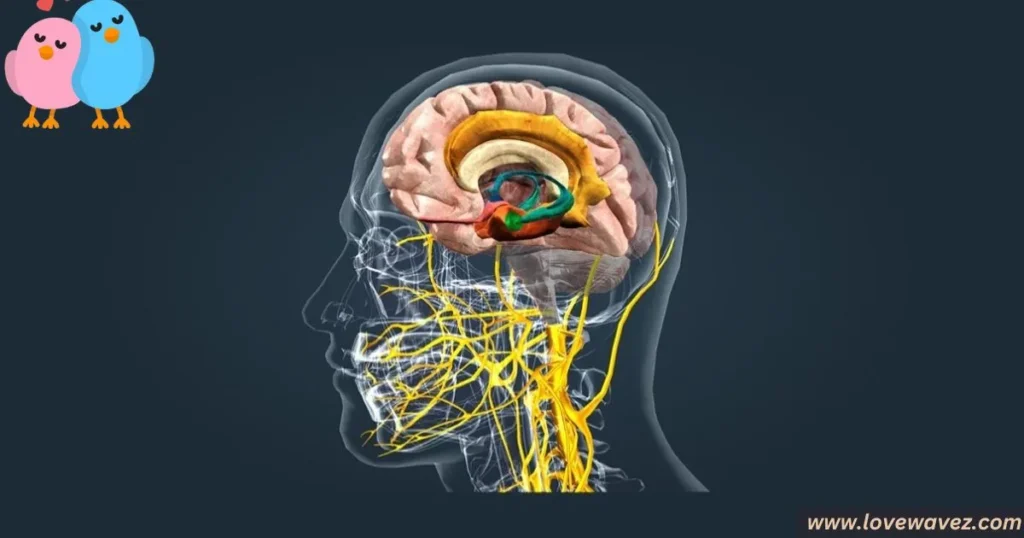“The power of words can shape your mind and ignite motivation.”
We all love inspirational quotes. These short, impactful sentences often fill us with hope, motivation, or even a new perspective. But have you ever wondered why these quotes feel so powerful? What is it about them that stirs our emotions or pushes us to action? The answer lies in the fascinating world of neuroscience. When we read or hear these quotes, something remarkable happens in our brains.
Neuroscience studies reveal that certain words or phrases can trigger deep emotional responses, activating the brain’s reward system. These motivational messages don’t just affect our thoughts—they change the way our brains function. This article will explore the fascinating connection between inspirational quotes and the brain, shedding light on why these simple sentences hold such incredible power.
Let’s dive into the neuroscience of inspirational quotes and discover the science behind the motivation they bring.
How Inspirational Quotes Affect Brain Chemistry
Inspirational quotes affect the brain by triggering neurochemical changes that impact mood and motivation.
- Dopamine release enhances feelings of pleasure and motivation.
- Serotonin levels increase, creating a sense of well-being.
- Quotes activate the amygdala, influencing emotional reactions.
- The limbic system helps process emotional responses to positive words.
- Oxytocin levels rise, enhancing feelings of connection and trust.
- Positive messages activate the prefrontal cortex, responsible for decision-making.
- The anterior cingulate cortex processes conflict and emotional regulation.
- The brain’s reward center responds to uplifting language.
- Inspirational quotes stimulate neural circuits associated with positive thinking.
- Endorphins are released, reducing stress and promoting happiness.
- Brain plasticity is influenced by frequent exposure to motivational content.
- Neurotransmitters like dopamine are crucial for reinforcing motivational behaviors.
- The ventral striatum is linked to the brain’s reward system.
- Positive reinforcement strengthens the desire for action.
- Uplifting messages engage the hippocampus, aiding in memory retention.
- Inspirational language taps into the brain’s default mode network (DMN).
- Cognitive empathy is increased when engaging with motivating quotes.
- Emotional resilience is strengthened through positive mental associations.
- Inspirational quotes help balance cortisol levels, reducing stress.
- Repetition of quotes promotes the formation of positive habits.
- Positive words activate the mirror neuron system, fostering social connection.
- Neural networks for motivation are strengthened with repeated positive inputs.
- Motivational quotes stimulate the brain’s ability to envision success.
- Oxytocin fosters emotional bonding when inspirational quotes are shared.
- The left hemisphere processes logical aspects of language.
- The right hemisphere processes the emotional tone of quotes.
- Neurogenesis is influenced by positive language, aiding brain growth.
- Glial cells support the neurons affected by inspirational content.
- Quotes activate the default mode network, which supports self-reflection.
- Neural pathways associated with reward and success are strengthened.
- Positive affirmations influence the brain’s ability to focus on goals.
- Vagus nerve activity is stimulated, enhancing relaxation through positive thoughts.
- Stress response is diminished when the brain engages with motivating quotes.
- Dopamine surges improve the brain’s ability to maintain focus and motivation.
- Mental clarity is enhanced when reading inspiring words.
- Emotional regulation improves as quotes reinforce positive emotional states.
- Positivity bias is encouraged as the brain gravitates toward uplifting words.
- Cognitive reframing is enhanced, helping shift negative perspectives.
- Neurological patterns form, guiding behavior toward goal achievement.
- Inspirational quotes improve self-perception by altering brain chemistry.
The Emotional Impact of Inspirational Quotes
Reading inspirational quotes can profoundly affect our emotions by influencing various brain regions responsible for emotional processing.
- Positive emotional response is triggered in the amygdala.
- Increased empathy occurs as the brain connects with positive narratives.
- Motivational messages enhance emotional resilience by reinforcing positivity.
- Cognitive reappraisal helps in transforming emotional experiences.
- Limbic system activation facilitates the emotional connection to quotes.
- Endorphin release improves mood and promotes a sense of happiness.
- Inspiring language stimulates the prefrontal cortex, balancing emotions.
- Self-esteem is boosted by emotionally uplifting content.
- Positive imagery is created in the mind, linked to the visual cortex.
- Quotes encourage the release of serotonin, improving emotional balance.
- Empathy circuits in the brain are activated by emotionally charged messages.
- Emotional engagement leads to the release of oxytocin, promoting trust.
- Emotional regulation is enhanced by processing positive language.
- Inspirational words foster feelings of hope and motivation.
- The hippocampus processes the emotional memory linked to motivational quotes.

- Emotional resonance amplifies the connection to positive words.
- Inspirational quotes reduce feelings of loneliness by fostering connection.
- Positive emotional feedback loops are strengthened.
- Emotional intelligence is enhanced as the brain engages with uplifting messages.
- Emotional resilience is built through repeated exposure to positive stimuli.
- Feelings of accomplishment are enhanced by motivational content.
- Emotional stability is reinforced by the consistent engagement with positive quotes.
- Inspirational quotes help reduce anxiety by promoting emotional balance.
- Positive emotional contagion occurs as quotes are shared with others.
- Mindfulness is enhanced, improving emotional awareness.
- Emotional catharsis can occur through reflecting on powerful quotes.
- Quotes stimulate emotional centers in the brain, aiding in mood regulation.
- Emotional clarity is fostered as the brain processes uplifting content.
- Emotional healing is facilitated by reinforcing positive messages.
- Stress reduction is achieved as the brain responds to encouraging words.
- Quotes provide an emotional anchor, grounding the brain in positivity.
- Positive emotional shifts occur as the brain rewires around motivating phrases.
- Feelings of gratitude increase with inspiring language.
- Positive emotional memories are created and stored in the brain.
- Emotional motivation leads to action when inspired by uplifting quotes.
- Inspirational quotes help maintain emotional balance during stressful times.
- Positive emotional contagion spreads in social settings through shared quotes.
- Self-compassion is encouraged, leading to emotional self-care.
- Positive emotional reinforcement occurs, promoting sustained happiness.
- Inspirational quotes act as emotional triggers, influencing overall well-being.
Father Daughter Relationships
How Inspirational Quotes Improve Cognitive Function
Inspirational quotes do more than just lift our spirits; they can improve cognitive function by engaging the brain’s problem-solving and decision-making areas.
- Improved focus is achieved by activating the prefrontal cortex.
- Critical thinking is enhanced by exposure to motivating messages.
- Cognitive flexibility improves as quotes encourage new ways of thinking.
- Neural circuits related to problem-solving are engaged.
- Memory recall improves through positive reinforcement.
- Inspirational quotes stimulate the brain’s language processing centers.
- Increased creativity occurs when the brain is inspired by uplifting language.
- Decision-making improves as the brain processes positive stimuli.
- Mental clarity is fostered by positive cognitive engagement.
- Brain plasticity is promoted through repeated exposure to motivating content.
- Cognitive reframing helps shift negative thought patterns.
- Neural networks for learning are strengthened through positive stimuli.
- Attention span increases as the brain focuses on positive outcomes.
- Problem-solving skills are enhanced by engaging with inspiring quotes.
- Mental endurance improves as the brain receives positive reinforcement.
- Cognitive empathy is developed through emotionally intelligent language.
- The prefrontal cortex is stimulated, enhancing cognitive control.
- Executive function improves as the brain organizes and processes motivating thoughts.
- Mental resilience is built by frequently engaging with positive quotes.
- Quotes encourage the brain to approach challenges with a growth mindset.
- Cognitive biases are reduced as quotes encourage new perspectives.
- Mental flexibility is increased as the brain processes uplifting messages.
- Inspirational quotes promote mental sharpness and attentiveness.
- Cognitive stress reduction occurs as positive quotes ease mental strain.
- Memory retention improves when inspired by powerful quotes.
- Mental processing speed increases as the brain responds to motivational content.
- Positive cognitive shifts occur as the brain rewires toward goal achievement.
- Cognitive motivation improves by setting new goals inspired by quotes.
- Neuroplasticity is enhanced, aiding long-term cognitive development.
- Quotes help the brain develop strategies for overcoming challenges.
- Cognitive connections between motivation and action are strengthened.
- Cognitive empathy increases, improving emotional intelligence.
- Motivational quotes stimulate thought patterns linked to positive outcomes.
- Quotes streamline thoughts and ideas, reducing cognitive overload.
- Mental focus improves, enhancing overall cognitive performance.
- Neural pathways associated with positivity are strengthened.
- The brain aligns with positive goals, improving cognitive decision-making.
- Inspirational quotes engage the brain in future-oriented thinking.
- “We create positive cognitive cycles that reinforce productive behavior.”
- Motivational messages support the brain’s ability to process complex thoughts.
The Role of Inspirational Quotes in Shaping Behavior
Inspirational quotes can significantly influence our behavior by activating parts of the brain responsible for decision-making, motivation, and action.
- Behavioral change is facilitated by the activation of the prefrontal cortex.
- Dopamine release motivates the brain to pursue positive actions.
- Goal setting is reinforced through quotes that inspire long-term vision.
- Decision-making is influenced by the emotional impact of motivational messages.
- Positive reinforcement encourages repeated actions that lead to success.
- Quotes stimulate the brain’s reward system, reinforcing good habits.
- Behavioral patterns are rewired by consistent engagement with uplifting messages.
- Inspirational quotes encourage the pursuit of new challenges.
- Quotes help the brain associate effort with positive outcomes.
- The brain’s decision-making areas are activated, promoting proactive behavior.
- Behavioral flexibility improves as quotes encourage adaptive responses.
- Quotes strengthen neural circuits associated with habit formation.
- Self-discipline is enhanced as the brain links positive behavior with reward.
- Inspiring content creates positive behavior loops through repeated exposure.
- Quotes promote the development of new, positive routines.
- The brain’s default mode network helps visualize future behavior.
- Self-regulation improves as motivational quotes shape intentional action.
- The continuous reinforcement of positive actions strengthens behavioral resilience.
- Goal-oriented behavior is promoted as the brain processes motivational input.
- Repeated exposure to uplifting quotes enhances habit formation.
- Quotes inspire the brain to focus on personal development.
- Behavioral consistency improves as the brain seeks to align actions with inspiration.
- Motivating messages strengthen neural connections related to perseverance.
- The brain’s reward system reinforces positive actions.
- Quotes that foster flexibility encourage behavioral adaptability.
- Motivational quotes encourage taking calculated risks.
- Behavioral inhibition improves as quotes guide self-control and discipline.
- The brain motivates goal-directed behavior and reinforces action.
- Quotes help the brain associate success with persistence.
- Behavioral changes become more sustainable when linked to positive messages.
- Motivational language stimulates the brain’s action-oriented networks.
- Continuous positive reinforcement helps achieve consistency in behavior.
- Quotes encourage the brain to focus on long-term benefits rather than short-term gains.
- Behavioral patterns become more goal-driven with regular exposure to motivational content.
- Emotional drive behind behavior is amplified by inspirational quotes.
- Increased perseverance occurs as the brain reinforces productive behavior.
- Quotes foster a growth mindset, leading to behavioral shifts.
- Inspirational content prompts action by activating goal-related brain regions.
- The brain’s response to consistent positive messages influences habitual behavior.
- Motivational quotes create a feedback loop that sustains positive behavior.
How Inspirational Quotes Influence Self-Perception
Inspirational quotes can reshape how we see ourselves by influencing brain areas involved in self-esteem, confidence, and identity.
- Uplifting messages encourage positive self-talk.
- Self-esteem improves as the brain processes positive affirmations.
- Engaging with motivational content reinforces self-worth.
- Quotes help the brain develop a more positive self-image.
- Quotes challenge negative beliefs about oneself and boost confidence.
- Empowering language influences identity formation through repeated exposure.
- Quotes that encourage kindness toward oneself promote self-compassion.
- The brain’s reward system reinforces positive self-perception.
- Quotes help reframe negative self-judgments into constructive perspectives.
- Positive affirmations strengthen neural circuits linked to self-esteem.
- Engaging with quotes that foster reflection enhances self-awareness.
- Inspirational language helps build emotional resilience, shaping how we view ourselves.
- The brain’s default mode network engages in self-reflection and responds to quotes.
- Positive self-perception aligns with the brain’s desire for emotional stability.
- Empowering messages enhance identity-building processes through repeated exposure.
- Inspirational quotes challenge limiting beliefs and reinforce a positive self-concept.
- Motivational quotes that push for personal growth bolster self-confidence.
- Quotes help create a cognitive blueprint for positive self-perception.
- Uplifting content strengthens the neural pathways involved in self-esteem.
- Positive reinforcement helps the brain link self-worth to constructive behavior.
- Quotes provide mental cues that foster self-confidence in difficult times.
- Consistent use of positive language promotes self-acceptance.
- How the brain processes motivational quotes ties to emotional resilience.
- Quotes help break down negative self-perceptions over time.
- Self-perception shifts occur as the brain adapts to positive input.
- Quotes that challenge self-doubt reinforce identity.
- Inspirational quotes build self-compassion by promoting kindness toward oneself.
- Confidence-building occurs as the brain rewires around positive affirmations.
- Quotes help create a mental framework for personal success.
- Positive self-talk activates the brain’s reward centers, reinforcing self-worth.
- The prefrontal cortex processes self-perception and responds to positive language.
- Positive identity formation occurs as quotes help the brain reshape limiting beliefs.
- “Engaging with empowering content minimizes self-doubt.”
- Quotes encourage the brain to focus on strengths rather than weaknesses.
- Self-image becomes more positive as the brain embraces motivational messages.
- Self-confidence improves as quotes reinforce the brain’s reward pathways.
- Inspirational quotes help transform how we perceive our capabilities.
- Neuroplasticity plays a key role in reshaping self-perception through quotes.
- Empowering language activates neural circuits for emotional stability.
The Connection Between Inspirational Quotes and Stress Reduction
Inspirational quotes have a stress-reducing effect by influencing the brain’s response to challenging situations and promoting emotional calm.
- Cortisol levels decrease when the brain engages with positive quotes.
- Inspirational language stimulates the release of calming neurochemicals.
- Improved emotional regulation reduces stress-related responses.
- Oxytocin release fosters a sense of emotional well-being and calm.
- Inspirational quotes promote a sense of control over stress.
- Positive words activate the neural circuits responsible for emotional balance.
- Quotes encourage cognitive reframing, helping to see stressful situations differently.
- The brain triggers relaxation responses in reaction to motivational content.
- Endorphin release leads to a natural reduction in stress and anxiety.
- Neuroplasticity allows the brain to adapt to stress by engaging with positive stimuli.
- Building emotional resilience helps manage stress more effectively.
- Positive affirmations lower the brain’s stress response, reducing overall tension.
- Inspirational content activates the brain’s calming centers.
- Quotes that promote balance strengthen cognitive coping mechanisms.
- Quotes help the brain shift focus from stress to positive outcomes.
- Motivational quotes promote problem-solving, reducing stress levels.
- Quotes help the brain release serotonin, creating a sense of relaxation.
- Uplifting language calms the amygdala, reducing stress triggers.
- Inspirational quotes promote mindfulness, which helps manage stress.
- The brain’s default mode network aids in self-reflection, reducing stress.
- “Positive reinforcement regulates stress hormones like cortisol.”
- Inspirational content promotes emotional balance, reducing mental strain.
- Quotes encourage the brain to see challenges as opportunities, not stressors.
- Inspirational language fosters a state of mental relaxation.
- Quotes activate the brain’s reward system, promoting emotional well-being.
- Positive emotional states reinforce lower stress levels.
- Engaging with quotes strengthens emotional coping mechanisms.
- Inspirational quotes reduce stress by fostering a sense of hope and optimism.
- Positive language stimulates the vagus nerve, enhancing relaxation.
- Positive affirmations improve the brain’s ability to manage stress.
- The brain achieves emotional stability by responding to motivational messages.
- Quotes help reduce feelings of overwhelm by providing perspective.
- Enhancing cognitive reframing helps the brain handle stress better.
- Inspirational content reduces negative thought patterns that contribute to stress.
- The brain activates its reward center, providing relief from stress.
- The calming effects of quotes restore neurochemical balance.
- Inspirational quotes create mental space for positive thinking, reducing stress.
- Stress management improves as the brain aligns with motivational thoughts.
The Impact of Inspirational Quotes on Goal Setting and Achievement
Inspirational quotes can significantly influence how we set and achieve our goals by reshaping our mindset and motivating our actions.
- Quotes enhance goal clarity by providing a clear vision of success.
- Positive affirmations spark motivation, pushing us toward our goals.
- Quotes reinforce the importance of persistence in achieving long-term objectives.
- Promoting mindfulness helps individuals stay focused on their present tasks.
- Neuroplasticity allows the brain to adapt to new goals as quotes inspire change.
- Quotes encourage setting specific, measurable, attainable, relevant, and time-bound (SMART) goals.
- Emotional engagement with quotes creates a personal connection to our ambitions.
- A positive mindset fosters a reduction in the fear of failure and encourages risk-taking.
- As we navigate obstacles toward our goals, we activate the brain’s problem-solving areas.
- Self-efficacy improves as quotes boost belief in our ability to achieve.
- Quotes provide mental frameworks for breaking down larger goals into actionable steps.
- Quotes that encourage imagining success enhance visualization techniques.

- Daily affirmations help maintain focus and motivation toward goal achievement.
- Motivational quotes stimulate the prefrontal cortex, which is responsible for planning.
- Quotes help prioritize tasks by aligning them with personal values and goals.
- Behavioral shifts occur as inspirational language inspires new habits.
- We build resilience as we encounter setbacks on the path to our goals.
- Inspiration from quotes helps to cultivate a growth mindset essential for success.
- Quotes foster a sense of accountability, encouraging us to commit to our goals.
- Celebrating small wins becomes easier through the encouragement of inspirational messages.
- Time management skills improve as quotes promote efficient use of resources.
- Motivational content strengthens the connection between effort and reward.
- Quotes serve as reminders to stay aligned with our core values during goal pursuit.
- Quotes emphasize the importance of adaptability in achieving goals.
- Quotes highlighting the value of teamwork inspire networking and collaboration.
- Quotes create a sense of urgency, motivating immediate action toward goals.
- Self-reflection enhances our ability to evaluate our progress regularly.
- Quotes encourage a balance between ambition and well-being during goal pursuit.
- Motivational language pushing for action facilitates overcoming procrastination.
- Quotes help the brain visualize the end result, making goals more tangible.
- Inspirational messages strengthen emotional connections to goals.
- Quotes help us see how our aspirations fit into our lives, fostering goal alignment.
- Quotes emphasizing the value of learning from others encourage mentorship and guidance.
- Inspirational content helps combat negative self-talk that hinders goal progress.
- Cognitive flexibility improves as we adapt our strategies based on motivational insights.
- Quotes strengthen resilience to external pressures as they reinforce our commitment to goals.
- Quotes encourage taking action despite uncertainty, promoting a proactive mindset.
- Quotes help cultivate patience and perseverance, crucial for long-term achievements.
Conclusion
In the fascinating intersection of neuroscience and inspirational quotes, it’s clear that these simple yet powerful statements have a profound impact on the brain. By activating specific neural pathways, releasing key neurochemicals, and promoting cognitive and emotional resilience, quotes inspire not just the mind but also shape behavior, reduce stress, and uplift self-perception.
Through a deeper understanding of how these mechanisms work, we can appreciate the true power of words to reshape our mental and emotional world, helping us thrive in both personal and professional settings.

Hi! I’m Lauren Reynolds, here to share insights on love, intimacy, and building strong relationships. Let’s create lasting love stories together!












